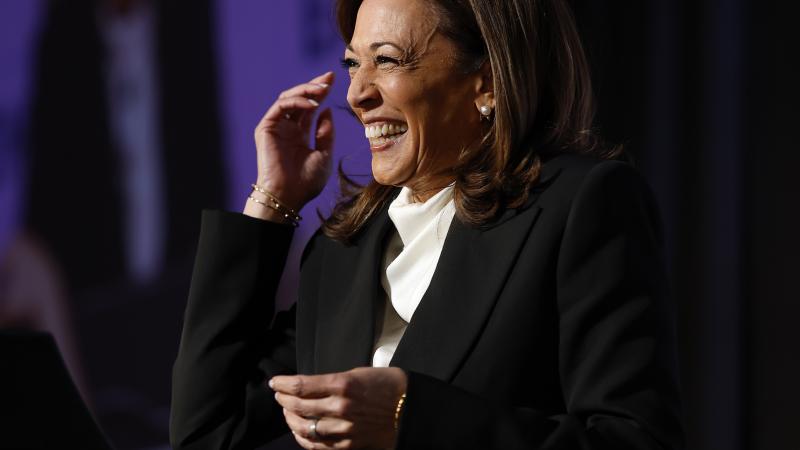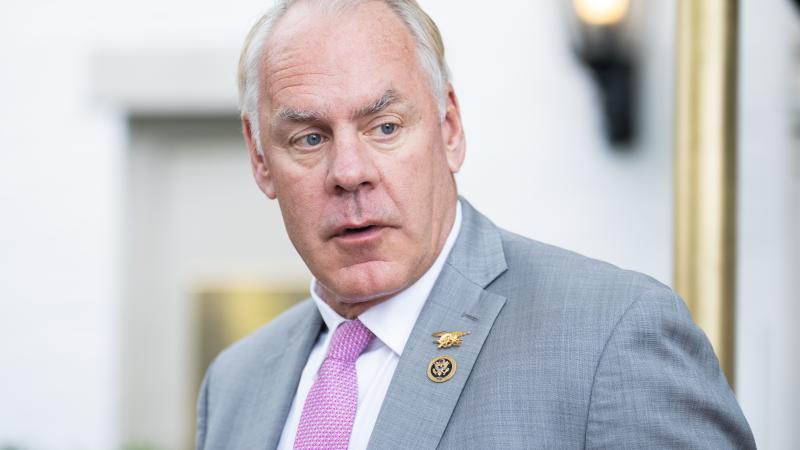As left pushes ranked-choice voting, concerns grow it will hurt minorities, seniors
Oakland NAACP President Cynthia Adams says new way of voting is "confusing" for seniors who were part of “the civil rights movement”
As liberal-leaning groups attempt to get more states to adopt ranked-choice voting in upcoming elections, chapters of the National Association for the Advancement of Colored People have raised concerns about the process, which they say could result in voter suppression and confuse seniors "who are the reason we're able to vote."
Chapters for the civil rights group in Oakland, the state of New York and Arlington, Virginia, have all raised issues about ranked-choice voting potentially confusing voters.
With RCV, when voters cast their ballots, they rank each candidate from first to last.
If no candidate receives more than 50% of the vote, then a runoff system is triggered.
The candidate with the least amount of first-choice votes is eliminated, then second-choice votes from those who voted for the last-place finisher are reallocated among the remaining candidates and tallied – in a process that continues until a candidate receives the majority of the vote.
Alaska and Maine are the only two states to have RCV at the state level.
Three counties and 47 cities also have RCV, according to pro-RCV organization FairVote.
Connecticut, Minnesota, Oregon and Vermont have passed pro-RCV legislation this year, and 27 states are considering pro-RCV legislation.
Florida, Montana, Idaho, South Dakota, and Tennessee have banned RCV.
“Ranked choice voting is not beneficial to minorities. It is voter suppression," Hazel Dukes, president of the NAACP’s New York State chapter said in June 2021 after the New York City board of elections erroneously uploaded 135,000 test votes for the Democrat mayoral primary before discarding them.
In Oakland, the city’s NAACP branch called for a recount in the 2022 mayoral race in which the margin of victory was 677 votes.
"With an election decided by slightly over 0.5% and a record number of rejected ballots, a manual recount is necessary to ensure we have a clear winner," Oakland NAACP President Cynthia Adams said in January.
There were nearly 3,100 votes that weren’t counted because they were considered over-votes, meaning voters chose more than one candidate in the same ranking.
Adams told Just the News on Wednesday that “more education” is needed “for our community, especially the seniors because they are voters.”
She further argued seniors are “only used to voting [between] two people,” and that they won’t vote for candidates whom they don’t know.
The new method is also “confusing” for seniors who were part of “the civil rights movement,” Adams said. “They’re the reason why we're able to vote, walk, and travel all over the world.”
The Arlington branch also raised concerns about RCV in a primary election earlier this month.
“We have directly heard a series of grave concerns from our community regarding the implementation of this significant change,” NAACP President Mike Hemminger said ahead of the vote. “We will be monitoring this change with intense focus in the run up to and after the election to ensure that no one’s foundational right to vote becomes disenfranchised or impeded in Arlington County.”
However, in January the Georgia State Conference NAACP in releasing its legislative agenda for the year backed RCV.
“We support increased opportunities for civic engagement, including the authority for ranked-choice voting,” the agenda reads.
The nationwide NAACP didn't respond to a request for comment.
Jason Snead, executive director of the Honest Elections Project, recently said RCV proponents are “pushing to get rid of the party primary system,” which "would weaken political parties and leave a power vacuum."
FairVote told Just the News on Tuesday in an email linking to data on voter support of RCV: “Everywhere ranked choice voting is used, voters like and understand it – 95% said it was simple in New York City, 92% in Minneapolis, 85% in Alaska, 81% in Utah, etc.
The organization also said that there are “different forms of ranked choice voting," and that “it can be used within party primaries and that Alaska is the only place in which it has been paired with nonpartisan primaries.”
Hans von Spakovsky, The Heritage Foundation’s manager of the Election Law Reform Initiative, said that in 2021 when RCV was used for the first time in the New York City mayoral election it took two weeks to tabulate the votes.
“They had 10 candidates in the race," he said. "So the average voter going in was supposed to rank all 10 candidates."
















